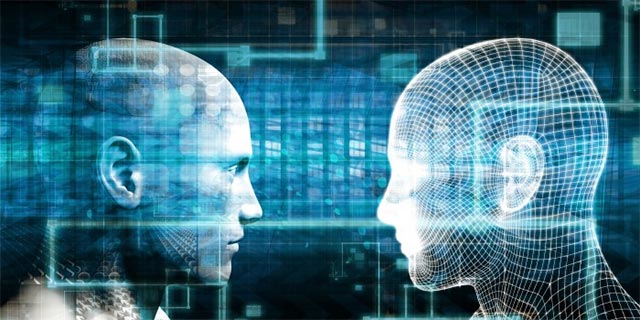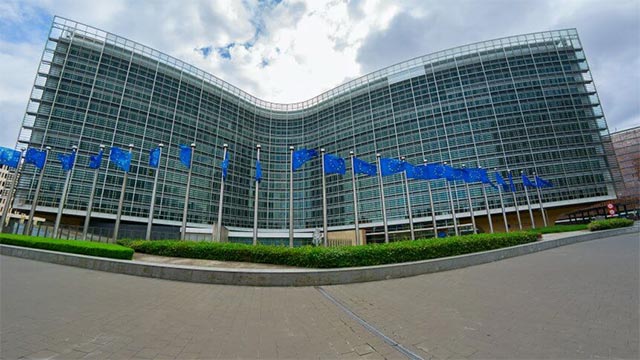EU: AI systems should be developed and implemented in a transparent and responsible manner
The European Union (EU) today officially issued a set of guidelines on how both businesses and governments should comply in developing and deploying their artificial intelligence projects so that truly transparent, fair to 'ethical'.

- 91% of technology managers believe that AI will be the center of the next technology revolution
This reminds me suddenly of a law called Three Laws of Robotics which was mentioned by the Russian writer Isaac Asimov in the short story "Runaround" written by him in 1942. As the first one: A robot is not allowed to harm people or ignore the danger that humans encounter. Article 2: A robot must absolutely obey the commands given by humans unless these commands conflict with the first rule. And the third thing: A robot must protect itself on the condition that such protection does not conflict with the first and second laws. This is just a set of 'fiction' rules that appeared nearly 80 years ago but are still especially full of current news when people are gradually entering the era of artificial intelligence as today. Of course, the new EU rule set will basically not be the same as Isaac Asimov's 'Three Laws of Robotics' law. European legislators cannot provide a flexible moral framework through which we can control things like 'big hammering' such as stopping killer robots. Instead, the EU guideline sets out to address 'gloomy and diffuse' issues, which negatively affect society when we integrate AI into many important areas of life. Living as health care, education and consumer technology.

- AI engineer Facebook talks about deep learning, new programming languages and hardware for artificial intelligence
For a simple example, if a medical AI system diagnoses a person at high risk of future cancer, the EU guidelines will help ensure some of the following things need to be done: Does the software being biased or biased by the patient's race or gender, and giving clearest, most transparent information about their medical condition, and especially not interfering with or hindering their decisions. doctor.
So, yes, these guidelines are given primarily to limit and control the AI models that work properly, but only at the administrator and bureaucracy level, not to prevent acts of murder by the writer Asimov.

- [Infographic] Future work when artificial intelligence gradually replaces people
In order to come up with this set of guidelines, the EU had to convene a group of 52 experts, asking them to discuss, agree and make 7 requests that they think future AI systems should meet. These requirements are as follows:
- The ability to monitor and make the final decision must still be in the hands of humans: AI should not, or rather not be allowed to 'trampled' on people's autonomy and self-determination. In contrast, people should not be manipulated or coerced by AI systems. After all, people must have the ability to intervene or monitor every decision AI software makes in necessary situations.
- Precision, reliable and safe deployment techniques: Each AI model, whether deployed at a laboratory scale or in practice, must ensure two elements of safety and accuracy, that is, Prerequisites. In other words, an AI software should not be easily compromised and gain control by external attacks, and every decision it makes must be absolutely reliable in the most reasonable way.
- Ensuring privacy and data management: Personal data collected by AI systems must be strictly confidential and completely private. These data are not allowed to be disclosed or can be accessed by any agent, nor can they be easily stolen or lost.
- Ensure transparency: Data and algorithms are used to create an AI system that should be accessible, and at the same time the decisions made by the software should be presented and explained clearly. . In other words, the operator must be able to explain the decisions that their AI system makes in a specific and logical way.
- Ensure diversity, non-discrimination and fairness: The services provided by AI must be available to everyone, regardless of age, gender, race or other characteristics. At the same time, the decisions made by the AI are not biased towards any characteristics or objects.
- Positive impacts on the environment and society: AI systems must be implemented and developed sustainably (meaning they must be ecologically responsible) and contribute to social change in a more positive direction. .
- Responsibilities: AI systems must be audited and protected by existing safeguards. In other words, the negative impact (if any) of the system should be acknowledged frankly, and operators must be responsible for the negative impact their AI system will cause.
Perhaps you will find that some of these requirements are quite abstract and will be difficult to be assessed in an objective sense (eg, the definition of positive social change that AI brings will be very different between one person and the other, between countries together. However, most of the remaining items are generally simpler and can be tested and guaranteed through the supervision of the authorities. For example, sharing data used to train government AI systems can be a good way to combat biased, non-transparent algorithms.

- [Infographic] Benefits and hazards from Artificial Intelligence
The provisions of this EU guideline are clearly not legally binding, but they can be used to shape any future legislation drafted by the European Union. related to AI field. In the past, the EU has repeatedly said that it wants to make Europe a pioneer in the world in implementing 'moral' AI models, and the introduction of a set of guiding documents. This clearly shows that they are ready to draft out extensive laws in regulating and protecting digital rights.
The EU wants to shape an AI industry with moral standards
As part of an effort to create an 'ethical' AI industry, EU guidance documents can be considered a stepping stone to creating a "reliable AI review list" - a list The terms can help professionals find any potential weaknesses or dangers in an AI software even if it has been deployed extensively, this list may include questions such as: 'Can you prove how your AI system operates in complex situations and environments?', Or 'Can you assess the type and scope of data in your data set?' ? . .
Of course, this evaluation list is only preliminary, EU will have to collect feedback from companies but also artificial intelligence experts in the future. As early as 2020, the EU will publish a summary report on this issue.

- AI researchers have stopped developing human-like machines
Anny Hidvégi, a policy executive with Access Now and a digital rights group and one of 52 experts responsible for developing EU guidelines, said the review list is an important part. Most important of the report: 'This document sets out to provide a realistic, forward-looking perspective on how to prevent and minimize potential harms of AI'.
'In our view, the EU has the potential and responsibility to become a leader in this work. But besides that we also think that the European Union should not stop at moral principles. They should consider asking future AI mining companies to comply with the law, 'added Hidvégi.
Some others are skeptical about the EU's attempt to shape how global AI is developed through ethical research that will probably have many effects.
'We are skeptical about the approach being taken by the leading European organization. The idea that by creating a gold standard for ethical AI systems, the EU will be able to assert its position in the development of the global AI industry is relatively uncertain. To become a leader in shaping ethical AI rules, the EU must first become a leader in the AI itself in general, 'said Eline Ch Pivot, a senior policy analyst. at the European Data Innovation Center share.
- Review important milestones in the history of more than 60 years of artificial intelligence development
How do you think about this issue? Leave comments in the comment section below!
You should read it
- ★ Top 5 programming languages to develop AI
- ★ The European Union aims to 'climate balance' by 2050
- ★ Watching pictures painted by artificial intelligence, everyone thinks that is the work of a true artist
- ★ Artificial intelligence learns to create another artificial intelligence, replacing people in the future
- ★ 91% of technology managers believe that AI will be the center of the next technology revolution